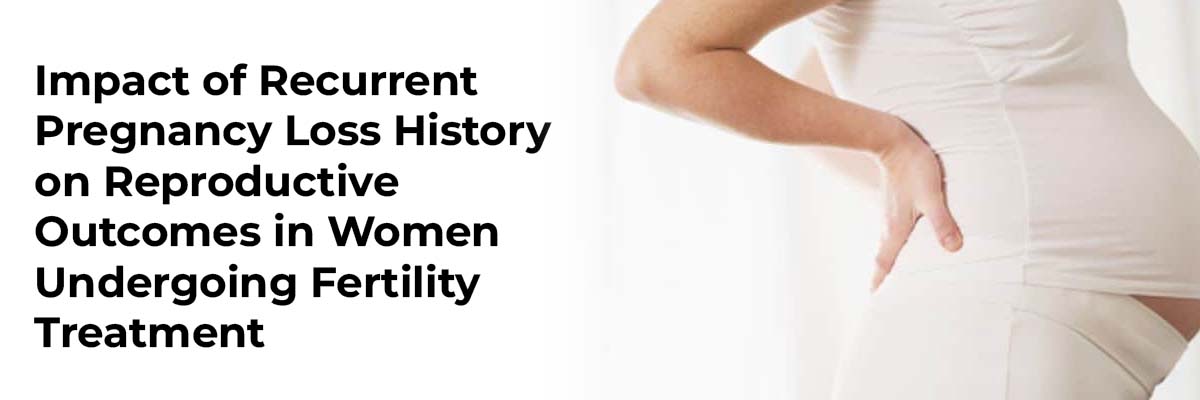
 IJCP Editorial Team
IJCP Editorial Team
Impact of Recurrent Pregnancy Loss History on Reproductive Outcomes in Women Undergoing Fertility Treatment
Recurrent pregnancy loss has a detrimental impact on the natural conception process, leading to adverse reproductive outcomes. While preimplantation genetic testing for aneuploidies has garnered attention as an intervention for women experiencing recurrent pregnancy loss, concerns such as the possibility of no viable embryos, substantial expenses, and doubts about its efficacy have constrained its widespread utilization. Beyond the consideration of embryo chromosomal health, factors like ensuring an optimal intrauterine environment play a pivotal role in enhancing reproductive outcomes for women with recurrent pregnancy loss.
The present study investigated the impact of the history of recurrent pregnancy loss on the reproductive outcomes of women undergoing fertility treatment. It included women who underwent their first frozen embryo transfer cycle or intrauterine insemination cycle between January 2014 and July 2020 and excluded couples with known karyotypic abnormalities (e.g., balanced translocation) or uterine malformation.
The observations were as follows-
- The study involved 29,825 women who underwent frozen embryo transfer cycles and 5,476 women who underwent intrauterine insemination cycles.
- For women undergoing frozen embryo transfer, a history of recurrent pregnancy loss did not show a significant association with biochemical pregnancy, miscarriage, or live birth rates.
- Similarly, in frozen embryo transfer cycles that resulted in clinical pregnancy, a history of recurrent pregnancy loss was not significantly linked to live birth or miscarriage rates.
- Among women undergoing intrauterine insemination, a history of recurrent pregnancy loss did not exhibit significant associations with fertility outcomes in all cycles, including those resulting in clinical pregnancy.
This study shows that in women undergoing fertility treatments without evident chromosome abnormalities or uterine malformations, a history of recurrent pregnancy loss bears no significant association with miscarriage or live birth rates. Hence, such a history holds little or no prognostic value when predicting the reproductive outcomes of frozen embryo transfer or intrauterine insemination cycles.
Qiu J, et al. Impact of recurrent pregnancy loss history on reproductive outcomes in women undergoing fertility treatment. American Journal of Obstetrics and Gynecology. 2022; 228(1): 66.e1-66.e9. https://doi.org/10.1016/j.ajog.2022.08.014

IJCP Editorial Team
Comprising seasoned professionals and experts from the medical field, the IJCP editorial team is dedicated to delivering timely and accurate content and thriving to provide attention-grabbing information for the readers. What sets them apart are their diverse expertise, spanning academia, research, and clinical practice, and their dedication to upholding the highest standards of quality and integrity. With a wealth of experience and a commitment to excellence, the IJCP editorial team strives to provide valuable perspectives, the latest trends, and in-depth analyses across various medical domains, all in a way that keeps you interested and engaged.






















Please login to comment on this article